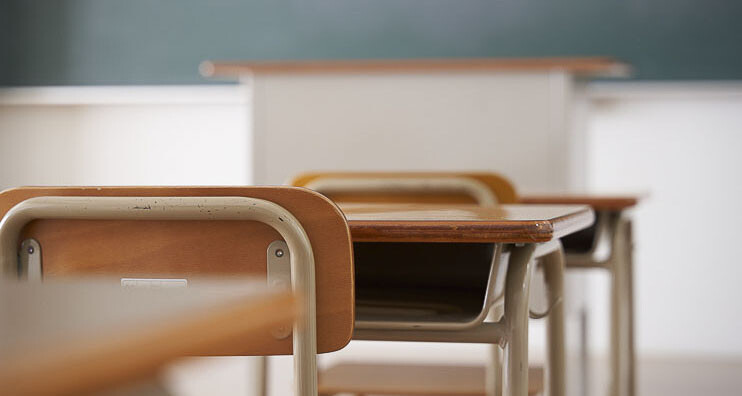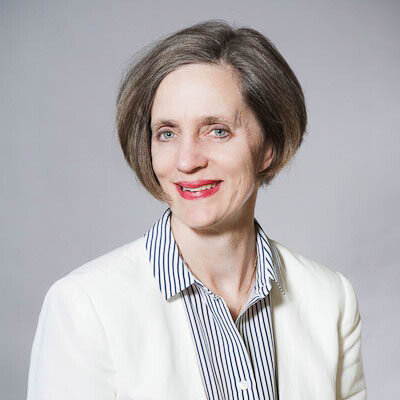
Liv Finne says that telling the public that students are ‘not behind’ but ‘gained a lot’ from the shutdowns gives families yet another reason to distrust the public schools

Liv Finne
Washington Policy Center
Soon the 2023-24 school year will begin. This will be the third school year after Governor Inslee and state Superintendent Reykdal imposed longer COVID school shutdowns than most of the country. These shutdowns began in March of 2020, lasted the entire school year of 2020-21, and continued to interrupt schooling the fall of 2021. Yet last week Superintendent Reykdal published this piece on the OSPI website reporting students are “not behind” but “gained a lot” from the COVID-19 school shutdowns:

Seriously? Students “gained a lot” from the COVID-19 school shutdowns? The text then weirdly contradicts this claim by admitting students are academically behind, but then asserts without evidence that “recovery is already happening,” providing students of George Orwell an excellent example of deceitful doublespeak.
Here is the hard reality facing Washington’s COVID-hurt students. State test scores show they are seriously behind; in the spring of 2022, 62 percent failed the state math test and 49 percent failed the state English test. Economists predict this COVID-harmed generation of students will have fewer education and career opportunities, and earn significantly less income.

The COVID school shutdowns are being blamed for current shortages of nurses, engineers, customer service representatives, seasonal workers, and army recruits.
A recent WSJ article notes that since 2020 the pass rates on certification exams taken by engineers, office workers, soldiers and nurses have all fallen. This means fewer engineers and other skilled workers on the job, and a lower degree of competency among those who make it:
“It is one reason that professional service jobs are going unfilled, and goods aren’t making it to market. It also helps explain why national productivity has fallen for the past five quarters, the longest contraction since at least 1948, according to the U.S Labor Department.”
These facts do not even begin to describe the psychological and mental distress suffered by teenagers isolated from their friends for nearly two years, a harm that may linger throughout their lives.
Parents aren’t fooled by the falsehoods being told by Washington’s school officials. The families of 46,000 students have withdrawn their children from the public schools, among the highest out-migration from the public schools in the nation.
Across the country lawmakers are trying to help parents. They are responding to the COVID school shutdowns, and to the radical CRT agenda now in the public schools, by passing school choice programs to give parents an alternative to public schools.
Enlightened countries like Sweden already give parents this choice. Per Unckel, former Minister of Education, describes Sweden’s voucher program in this four-minute video by Lance Izumi in the New York Times :
“Education is so important that we can’t actually leave it to one producer…
“Kids should never ever have to stay in a school if the school is lousy…
“The right of the kid is to get a good education…
“If the public sector cannot offer it, he or she should have a right to go somewhere else.”
Lawmakers in America are now giving students the right to attend private school with public dollars.
In the last two years the eight states of West Virginia, Arizona, Utah, Arkansas, Iowa, Ohio, Florida and Oklahoma have passed universal school choice, providing between $4,300 and $8,400 per child to help all families send their children to private school. Thirty-two states, Puerto Rico, and D.C. offer direct aid to attend private school to families with special needs children, low-income families, and families assigned to failing public schools.
School choice is creating an exciting marketplace for private education innovators. Micro-schools, classical schools, forest schools, schools serving the learning needs of our pluralistic society are now cropping up all over the country.
Telling the public that students are “not behind” but “gained a lot” from the COVID-19 school shutdowns gives families yet another reason to distrust the public schools, and to leave for the private marketplace if they possibly can.
Liv Finne is the director of the Center for Education at the Washington Policy Center.
Also read:
- Opinion: HB 1217 – Rent control is law … or is it?Vancouver resident Bill Black challenges the enforceability of Washington’s new rent control law, HB 1217, warning it may worsen the state’s housing shortage.
- Letter: ‘Marie (Gluesenkamp Perez) sadly fails to recognize the sanctity of human life from conception to natural death’Vancouver resident Ann Makar shares her letter to Congresswoman Marie Gluesenkamp Perez and criticizes her stance on the sanctity of human life.
- Letter: ‘Anyone from the majority party listening?’In a letter to the editor, area resident Bob Zak argues that HB 1163 is unconstitutional and criticizes the legislative majority for supporting it.
- POLL: Should the I-5 Bridge project be paused over cost and bidding concerns?Clark County Today’s weekly poll asks whether the I-5 Bridge replacement should be paused as questions grow around rising costs and a lack of competitive bids.
- Opinion: 18th District Sen. Adrian Cortes explains positions on legislation he voted onDick Rylander shares responses from Sen. Adrian Cortes about his votes and reasoning on major legislation this session.











I would be very upset, I am sure, to see the figures on how many people actually believe this outright lie. Too many people still think they can trust government officials. They said it was good for the children, it’s safe, it’s good for you,etc. etc. Please everyone wake up and do some research to see through these lies.
Another in a long line BS coming out of our Government.
Superintendent Reykdal should be fired! He is living in a fantasy world, or he is a prolific liar. How much weed does he smoke? I hope those parents pull their kids out of that public school. Lars Larson was talking about 3rd graders taking a proficiency test to see if they can read. If NOT, they should repeat 3rd grade until they can pass.
What a complete crock!